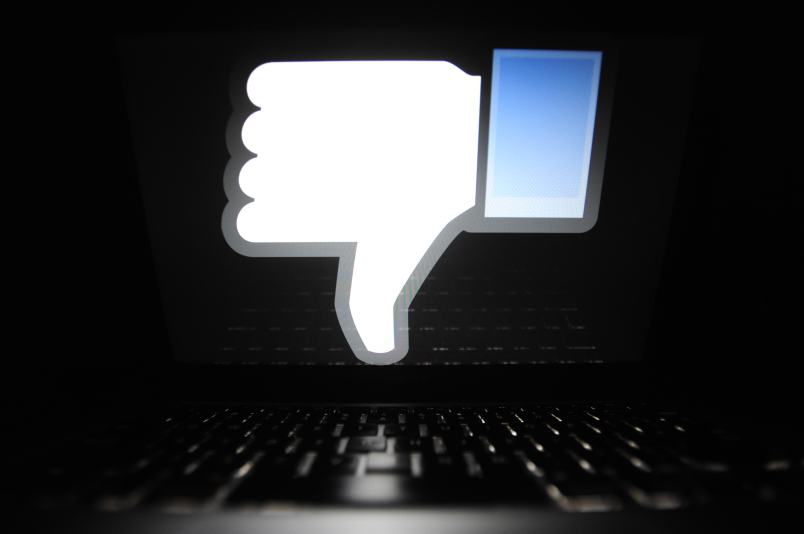I flagged this on Twitter before President Trump started flogging it. But I’m not at all surprised that he did. Because, somewhat to my surprise, it revealed that Facebook seems still to be committed to lying, albeit now more artfully, about its role in the 2016 election and more broadly as a channel of choice for propaganda and misinformation.
First, here’s the tweet I saw from Facebook’s VP of advertising: Rob Goldman …
The majority of the Russian ad spend happened AFTER the election. We shared that fact, but very few outlets have covered it because it doesn’t align with the main media narrative of Tump and the election. https://t.co/2dL8Kh0hof
— Rob Goldman (@robjective) February 17, 2018
There is, as they say, a lot to discuss here. Facebook was a bad actor by complicity in the entire 2016 election Russian interference campaign. As I’ve noted in other posts, it’s an engine built to maximize engagement for ad sales and data collection which operates with no need to price its negative externalities. To pull that out of jargon into more concrete terms, it’s like a factory that is highly profitable in large part because it can dump its toxic waste into the local river. Facebook is designed to do stuff like this. So it’s not some shocking or unexpected occurrence that this happened.
For months, Facebook’s executives, including its founder and CEO not only denied but mocked the idea that its platform had been used to distribute misinformation and propaganda during the 2016 campaign. It came clean only under tremendous pressure, both legal pressure and the pressure of public opinion. It’s laughable and frankly offensive that any executive from Facebook thinks he can lecture anyone on this topic. Facebook had dirty hands in this whole drama and had to be dragged kicking and screaming to any discussion of its responsibility.
Of course there’s no bright line between the goal of electing Trump and the broader goal of sowing discord and confusion. The essence of the whole story is that both overlapped. But note Goldman’s effort to deemphasize the election and argue that the real goal wasn’t electing Donald Trump. Presumably an ad executive wouldn’t feel like he had a particular dog in that fight either way. But it’s clearly a pretty key thing for him. He even apes what amounts to quasi-Trumpian rhetoric in saying the media distorts the story because the facts “don’t align with the main media narrative of Trump and the election.” This is silly. Elections are a big deal. It’s hardly surprising that people would focus on the election, even though it’s continued since. What is this about exactly? Is Goldman some kind of hardcore Trumper?
I have no idea what Goldman’s politics are. But whatever they are, I don’t think they are what’s driving this. It’s built into Facebook’s business model and of a piece with its corporate culture. The business model of Facebook is universal usage. It doesn’t target one demographic or regional or political audience. The whole point of Facebook is that everybody be on it. Much of its network value is bound up in that universality. Everyone’s on Facebook. Everyone has an account.
This business model has critical political implications. Much like a television network, it can’t be perceived as taking sides in America’s increasingly polarized politics. That could cut it off from a big chunk of its potential audience. This fact has shaped the behavior of all of the tech giants over the last decade but none more so than Facebook. Nothing is qmoreq politically divisive today than the question of Russia’s role in the 2016 election. And yet Facebook is implicated in that story. It can’t avoid it, despite trying desperately to do so. Simply put, if Facebook collectively says what is obvious: that Russia decided it wanted to elect Donald Trump President and used Facebook as one tool to do that, it becomes just another part of the ‘fake news’ universally derided by Trump and his supporters.
It’s an understandable dodge in a way. After all, Facebook’s business model requires being Facebook for everyone. But what it tells me is that Facebook is still in the business of lying about its role in the 2016 election. President Trump himself clearly saw immediately that Goldman’s line was an effort to align Facebook with President Trump’s messaging – namely, it wasn’t about electing Trump and anyone who says the contrary is just trying to push “the main media narrative of T[r]ump and the election.”
The Fake News Media never fails. Hard to ignore this fact from the Vice President of Facebook Ads, Rob Goldman! https://t.co/XGC7ynZwYJ
— Donald J. Trump (@realDonaldTrump) February 17, 2018
In other words, the story of Russia’s effort to elect Donald Trump is just ‘fake news’. Facebook remains part of the problem.






